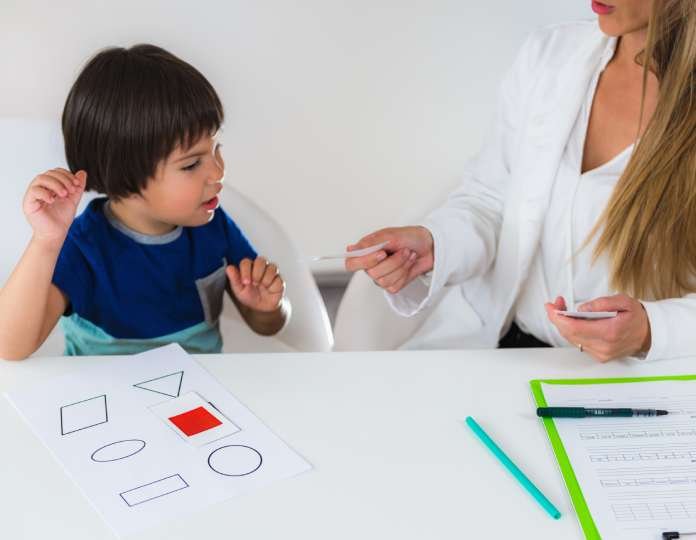One in every 100 youngsters falls into the autism spectrum, according to the WHO. Autism is a distinctive way of thinking marked by exceptional ability in many areas of life, not a sickness or mental disorder. Every year on April 2, World Autism Awareness Day is observed to promote neurodiversity and increase public awareness of the rights of individuals with autism. Creating an environment that is inclusive and supportive of individuals with autism requires first embracing each person’s uniqueness.
What is Autism Spectrum Disorder?
Autism spectrum disorder (ASD) is a neurological and developmental condition that affects a person’s ability to learn, behave, interact with others, and communicate. Even though autism can be diagnosed at any age, it is nonetheless considered a “developmental disorder”. This is because most symptoms appear during the first two years of life. People with ASD frequently exhibit the following symptoms, which are listed in the Diagnostic and Statistical Manual of Mental Disorders (DSM-5), a manual developed by the American Psychiatric Association and used by medical professionals to diagnose mental disorders:
- Having trouble interacting and communicating with others.
- Limited passions and habitual actions
- Symptoms that impair their capacity to carry out daily tasks like going to school and working.
Because there is a large range in the kind and intensity of symptoms that persons with autism experience, the illness is referred to as a “spectrum” disorder. ASD can be diagnosed in people of any gender, color, ethnicity, or socioeconomic status. Despite the possibility that ASD is a lifelong condition, some programs and therapies can help with symptoms and day-to-day functioning. It is recommended by the American Academy of Pediatrics that all children undergo screening for autism. Parents/caregivers should discuss ASD screening or evaluation with their child’s medical professional.

World Autism Day Awareness Theme 2024
To raise awareness, the UN chooses a subject for Autism Day each year. In 2024, the color blue will be used to represent acceptance and understanding on World Autism Day. This year’s ‘Light It Up Blue’ campaign invites individuals to show their support by donning blue lights and apparel.
Why is World Autism Day observed?
The UN General Assembly designated April 2nd is World Autism Awareness Day in 2008 in an effort to increase public awareness of ASD and provide support for individuals living with autism to have productive lives without barriers. The objectives and justifications for commemorating this day are: Why Give those with autism spectrum disorders equitable opportunity so they can engage in society?
- Push for policy modifications that will encourage inclusion and acceptance
- Get rid of prejudice towards those who have autism
- Dispel misconceptions about autism through education
- Provide services and treatment to families of individuals with autism.
- Pay attention to the diversity and exceptional abilities among autistic individuals.
Causes and Risk factors of ASD
Although the main causes of ASD are unknown, research indicates that a person’s genes and environment might interact to influence development in ways that result in ASD. The following are some variables linked to a higher risk of developing ASD:
- Having an ASD sibling
- Having parents who are older Possessing specific hereditary disorders (like Down syndrome or Fragile X syndrome)
- Being born with an extremely small weight.
Tips to Help the Children with Autism
Better treatment of autism in children can result from early detection of the disorder’s symptoms. Early diagnosis and prompt treatment can help children recover; this may involve a combination of speech, occupational, and behavioral therapies to control symptoms. Speak with your doctor right away if you believe your child is developing later than expected. Finding out that your child has an ASD diagnosis can be difficult because there is no known cure for the illness. Nonetheless, your child can overcome developmental problems with the support of therapy and specialized programs.
To assist you support your child with autism, here is some helpful parenting advice.

• Never Postpone Seeking Treatment
Do not wait for a diagnosis to begin treatment if you believe that your child’s development is abnormal. The likelihood of the treatment being successful increases with early initiation.
• Learn for Yourself
As much information as you can regarding ASD should be gathered. Making educated decisions can be aided by knowledge about the illness and available treatments. It will also enable you to engage in your child’s care and ask questions.
• Recognize Child
Keep an eye on your youngster to learn what pisses him off, what makes him feel uneasy, and what soothes him. What he finds appealing and disagreeable. You can avert challenging situations by being aware of obstacles and child’s behavior.
• Give up comparing
Never make comparisons between your child and other kids. Recognize, appreciate, and relish his individuality. Embracing him and acknowledging his small victories will make your youngster feel valued and loved.
Some other parenting advice:
- Stick to a Schedule People with autism function best in regimented environments. They remain calm and consistent when they adhere to a set schedule for eating, playing, sleeping, and schooling.
- Recognize Your Child’s Hypersensitivity Find out what stresses your youngster out or what triggers him. Children with ASD have varying degrees of sensitivity to light, sound, touch, smell, and taste. Recognizing your child’s influences will help you steer clear of stressful situations.
- Establish and Maintain Contact with Your Child Even though it can be difficult, nonverbal communication can help you connect with an autistic child. Bonding with your child can be tremendously aided by your touch, tone of voice, body language, and how you look at them. Try to spend enjoyable time with your child by participating in things they enjoy.
Individuals with Autism
Although the exact origin of autism is unknown, scientists believe that genes and environmental factors may both be involved. While there isn’t a cure for ASD, there are therapies and treatments that can help manage its symptoms. People with ASD can make valuable contributions to society with early intervention, therapy, and support. World Autism Awareness Day is a unique opportunity to honor the individuality of each person on the spectrum and to raise awareness of the condition among the general public in order to foster inclusion and acceptance.
References+
- https://www.un.org/en/observances/autism-day
- https://www.nimh.nih.gov/health/topics/autism-spectrum-disorders-asd













Leave feedback about this